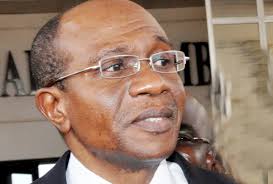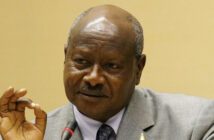The Central Bank of Nigeria (CBN) has taken a holistic monetary palliative aimed at ensuring Naira exchange rate stability and forestalling the potentially dangerous impact of the falling oil prices in the international oil market on the economy.
The CBN has finally bowed to pressure to devalue the Naira after several months of battling to defend the exchange rate against demand pressure using the nation’s foreign reserves. It reduced the official naira-to-dollar exchange rate to N168/$1, forcing down the currency down by N13 down from N155/$1 as the country struggles to reshape its fiscal policies in response to dwindling oil price which has taken its toll on the foreign reserves and raised the benchmark interest rate.
The monetary policy rate (MPR) was raised by 100 basis points from 12 per cent to 13 per cent, a move that will see a major increase in the cost of capital as banks increase their lending rates to reflect the change. It also increased the cash reserve ratio (CRR) for private sector deposits from 15 per cent to 20 per cent while retaining public sector CRR at 75 per cent.
Rising from the two-day Monetary Policy Committee (MPC) meeting yesterday, CBN governor Godwin Emefiele said the decision to lower the value of naira against the dollar was taken to strengthen the currency. Emefiele said the decisions were taken after critically considering the options open to the regulatory institution to stem the tide of declining external reserves, ensuring Naira exchange rate stability and sustaining inflationary rate at single digit as well as ensuring credit to key sectors of the economy,
The naira has come under intense pressure in recent months following continuous slide in oil prices, forcing the CBN to step into the currency market defend the exchange rate. But with depletion in foreign reserves, it has only been able to temporarily sustain the exchange rate from time to time. Though speculations of devaluation have been rampant, the CBN had not taken any step in that direction until yesterday.
Describing the emerging developments at local and international economic environments as calling for serious fiscal and monetary palliative measures at the domestic level, Emefiele explained that the Nigerian situation demanded that the CBN confront the issue of declining external reserves, financial system stability and inclusive growth of the economy head-on in order to consolidate the recent achievements of adopted policies.
While assuring of the committee’s commitment to these measures in order to sustain the credibility of the Bank’s policies and anchor the expectations of core stakeholders, the CBN governor defended the committee’s stance for a more flexible naira in the face of non-existent fiscal buffers as the most viable policy option at a time of heightened demand pressure for foreign exchange and falling oil prices.
Reacting to media enquiries on how Nigeria can effectively cope with the pricing uncertainties in the oil market, the CBN governor, who described the $73 oil price benchmark for 2015 budget as good but not pessimistic enough to protect the downside of the economy as an interim measure, said he foresaw that the tightening measures will continue unless there was an improvement in the global economy, particularly in the area of oil price which is currently exposing the Nigerian economy to some vulnerability.
On the dwindling foreign reserves and what could be done to mitigate the pressures, Emefiele noted that the only viable long-lasting option for the country remained the diversification of its economic base and reduced importation of goods and services, He said: “I think what could have been done is that we could have taken measures to diversify our economy. We have certain infrastructural issues that we need to deal with. There is a need for us to diversify. Why should we be importing rice? Why should we be importing fruit juice into the country? Why should we be importing milk? In fact, before I was born, milk was being imported into this country, what rocket science do we need to produce milk? “It is just for people to get committed and embrace agriculture. We need to refocus, we need to look inwards, there are so many countries today that started their drive towards industrialization many years ago just like us and they have made progress; they have transformed their economies from being import-dependent economies to economy that can be seen to have embraced import substitution. “I must confess that at this stage, we don’t have a choice, we must embrace import substitution before we talk of export-oriented industrialization. We must move away from importing these goods that are creating a lot of pressures on our reserves. If we do this, our reserves will get stronger,” he said.
Emefiele also advocated the need for the states to rev up their Internally Generated Revenue drive by exploring non-oil productive activities within their domains in view of the uncertainties of distributions from the Federation Accounts in the months ahead. In addition, he also pointed out the need by the National Assembly to fast-track the ongoing deliberations on the Petroleum Industry Bill, PIB, with a view to passing into law and using it as legislative instrument for attracting investments into the upstream sub-sector and improve transparency and accountability in the sub-sectors’ operations.




